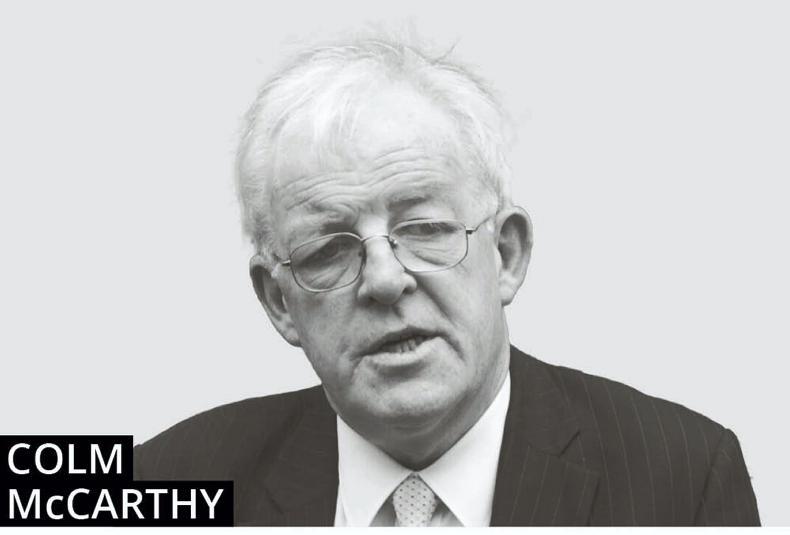Alok Sharma, the British minister who chaired the COP26 gathering in Glasgow, struck an uplifting note as the proceedings were concluding. “This is our chance to forge a cleaner, healthier, more prosperous world,” he said.
The outcome at Glasgow has been judged disappointing but dealing with the climate threat was always going to entail a sacrifice of living standards.
Success in curbing emissions will make the planet cleaner and healthier, but to suggest that it will also promote prosperity is dangerous and risks a backlash from the public.
There will be adverse effects through the transition, more severe the more ambitious the climate policy. Sharma is not alone in peddling the prosperity fable – there has been plenty of happy talk in this country about “green jobs” and the unsuspected economic opportunities about to announce themselves.
To reduce the consumption and hence production, of carbon-intensive products and services, it is necessary that the public be discouraged, persuaded out of their current habits and preferences. This could most effectively be done through the imposition in all-consuming countries of taxes and charges which reflect the carbon content.
The COP26 meeting did not consider this policy framework since it has been off the agenda since the Rio Earth Summit in 1992. The preferred formula is voluntary territorial emissions limits country-by-country, and Irish farmers are already wrestling with the consequences.
Thirty years have been wasted since a sufficient case was established to justify climate action. The most visible result is an enormous stock of stranded assets, which must now be replaced before their useful lives are done, assets which would not have been chosen had a better policy been adopted in good time.
The world’s investment budget must now be raided to replace these unsuitable assets prematurely and will be diverted from projects which would have improved living standards.
Think of it this way: if you acknowledge a serious mistake and must adjust, this is not going to be painless. You bought the wrong house, chose the wrong life partner, signed up for the wrong college course. How is this good news? Take a specific example: the last peat-fired power station in Ireland is at Edenderry and was commissioned as recently as 2004. It will have to close, since emissions are too high, which means it will have to be replaced no more than halfway through its expected life. This is a cost, not a benefit, of the climate transition.
Ireland has imported hundreds of thousands of secondhand cars, mainly diesel, from the UK over the last decade. They have higher emissions than newer models but were more affordable. This was a mistake and they will be costly to replace. The replacements cannot be secondhand electric cars since only new ones will be available for many years to come. The electricity grid will have to be built afresh to hook up new renewable generators and to deliver power to all those cars.
Across the European Union, it has been estimated that the investment bill for replacing stranded assets, in areas like the vehicle fleet, space heating equipment and the power generation system, will equate to a full year of normal economic output over the next decade. This will not expand the stock of productive assets; it will merely replace them with assets that do the same job with lower emissions.
The public will in due course be asked to bear the costs. It does not matter whether this is done through direct charges or through State subvention, which redistributes the burden but cannot reduce it. Whenever a mid-course correction must be undertaken, there is a cost and the priority is to get the new routing right and avoid adding to the damage.
Public acceptance
Public acceptance of cost-minimising policies, such as carbon taxes, is undermined whenever politicians and governments pretend that there will be no costs, or that they will be borne by somebody else.
A regular manifestation is the contention that the climate transition can be accomplished through the costless deployment of new technologies, including technologies which already exist and speculative technologies which may never prove to be scalable.
Existing technologies, like wind power and electric traction for vehicles, can be deployed on a greater scale but they must be paid for and older assets discarded prematurely.
Speculative technologies abound and their proponents form a noisy queue for government subvention. Some may eventually pay off but there will be disappointments. There are sceptics who doubt that wave power, or biofuel, or carbon capture, will ever be sufficiently scalable to make a big difference and their constant promotion feeds the illusion that costless technical innovation is just around the corner. The climate transition imposes costs and they will rise the longer it is deferred. Best to ‘fess up and tell the public.






 This is a subscriber-only article
This is a subscriber-only article










SHARING OPTIONS: